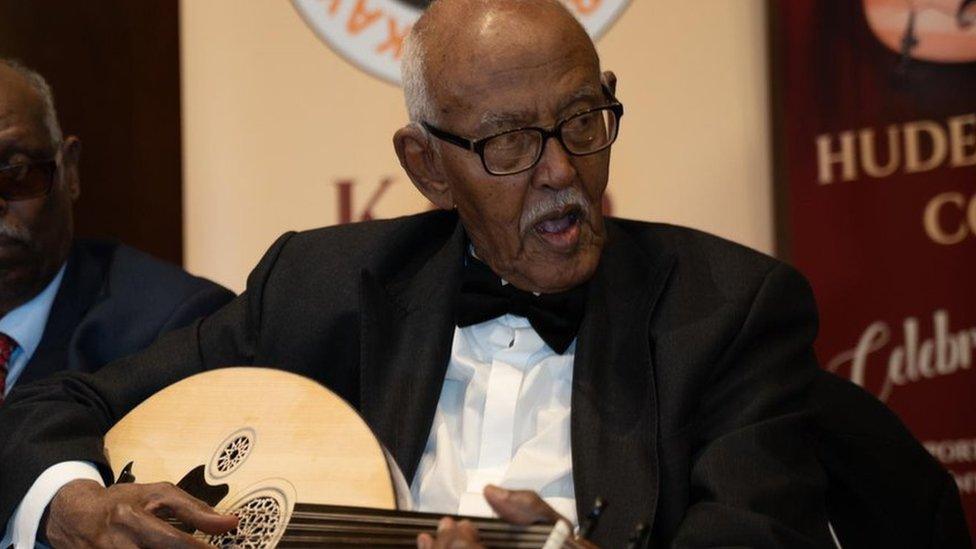Bristolian Somalis send Covid-19 money to Somaliland
- Published
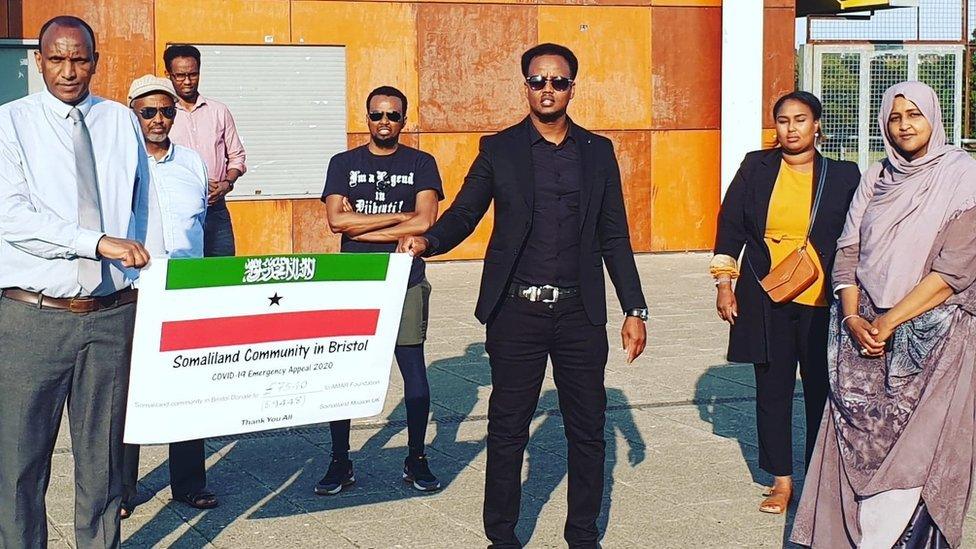
Mohamed Sayaqle (centre), Said Burale (2nd left), Nura Aabe (far right) and other volunteers present Kaysar Mohamed from the Somaliland Mission UK with the cheque
A community in Bristol has raised money to help family and friends in the self-declared republic of Somaliland cope with the coronavirus pandemic.
Mohamed Sayaqle said the group, which has Somali heritage, had raised more than £7,500 for two mobile labs to test people in rural areas.
Said Burale, from Bristol, said: "It is so hard for our people in Somaliland, who have no effective health system."
There are 3,015 confirmed cases and 92 deaths in Somalia, and Somaliland.
Mr Sayaqle said he and many other volunteers had been supporting "our vulnerable disengaged groups in Bristol including elders and people in isolation".
"The unprecedented situation of Covid-19 has been a huge challenge in Somaliland and Somalia like many other parts of the world.
"Somaliland, which claims itself independent from Somalia, has no effective health system and technology to deal with the coronavirus in this gloomy period," he said.
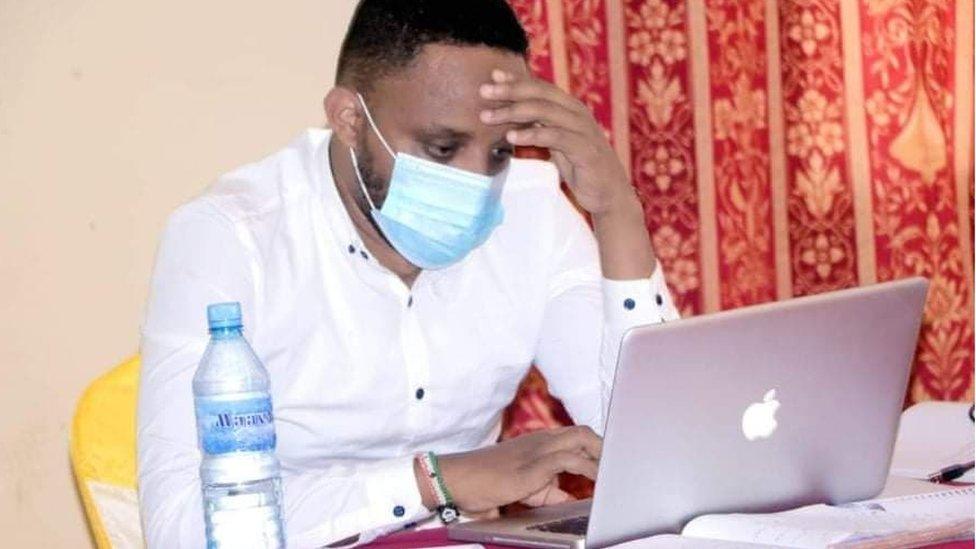
Nasrudin studied at the University of the West of England and works as a measurement and cost engineer in Hargeisa
Engineer Nasrudin Osman, from Bristol, is currently working in Hargeisa, capital of Somaliland.
"Here in Hargeisa, where I have been living during this difficult times of Covid-19, people are not complying sufficiently with government measures on the pandemic.
"They don't tend to follow social distancing and other medical guidelines properly. It's mostly due to the fact that people can't afford to stay home.
"They won't have anything to eat if they don't keep going out to earn their living, in whatever means they were previously managing to meet before the virus."
He said the health system was "barely working for Somaliland citizens" before the pandemic but "now things have taken a turn for the worst" with hospitals "lacking basic equipment such as oxygen cylinders, masks and gloves".

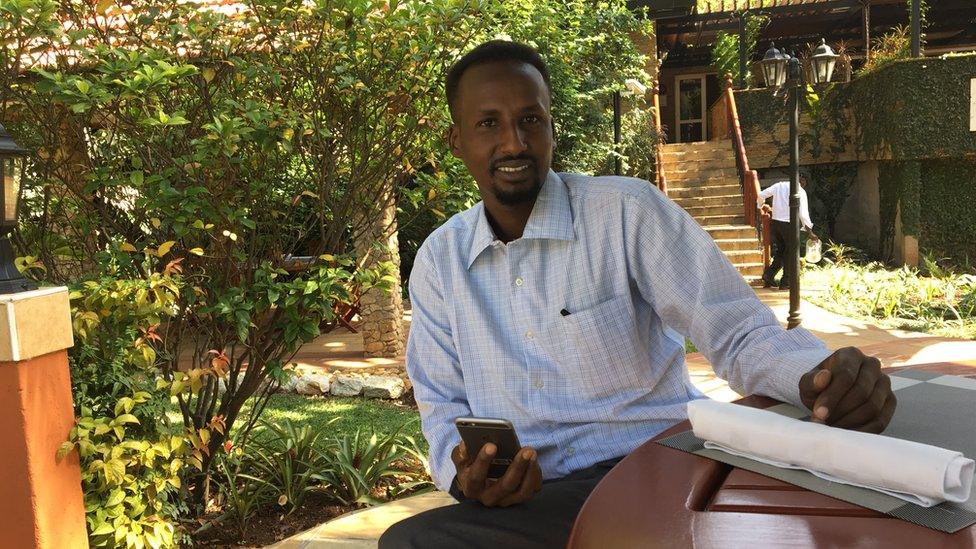
BBC journalist Sidiiq Burmad is based in Hargeisa
BBC Somali correspondent - Sidiiq Burmad in Hargeisa
The need for diagnosis exceeds the existing capacity, as this service is only available in the public hospitals of the big cities, while people are scattered throughout the country.
About 15,000-30,000 people call the Covid-19 hotline on a daily basis but only 50 of them get access for diagnosis.
Public awareness about Covid-19 has drastically decreased, signalling that the public concern towards the disease is lowered.
The national Covid-19 committee has also lifted bans on public gatherings, hotels, playgrounds, education centres and the facilities closed due to the disease.
The economic status of the country and peoples' dependency on economic activities, has made complete lockdown as it is in many countries, impossible.

- Published16 July 2021
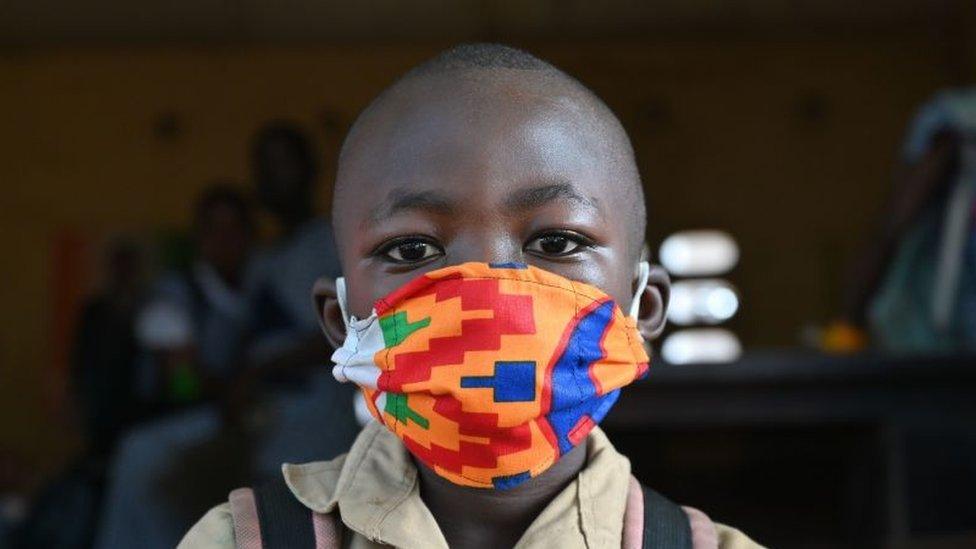
- Published21 April 2020
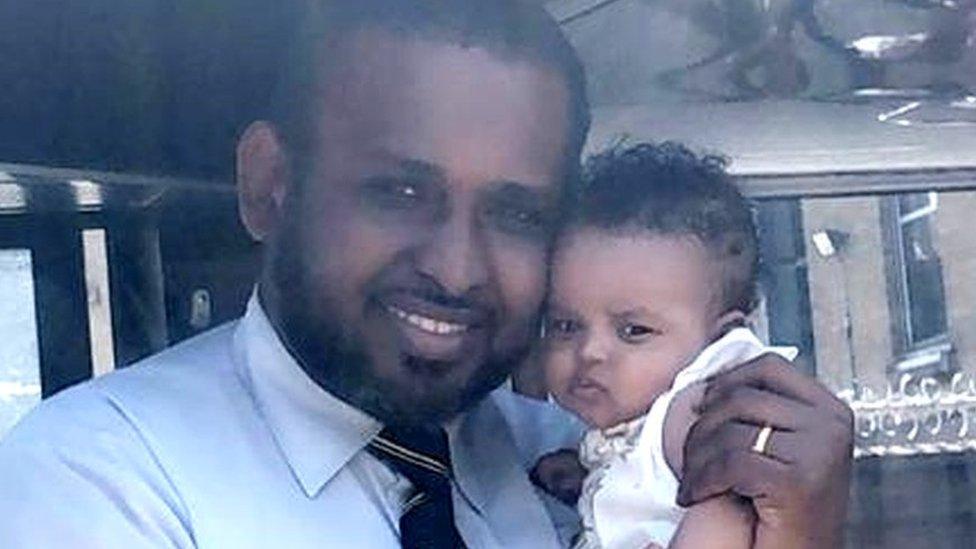
- Published15 April 2020
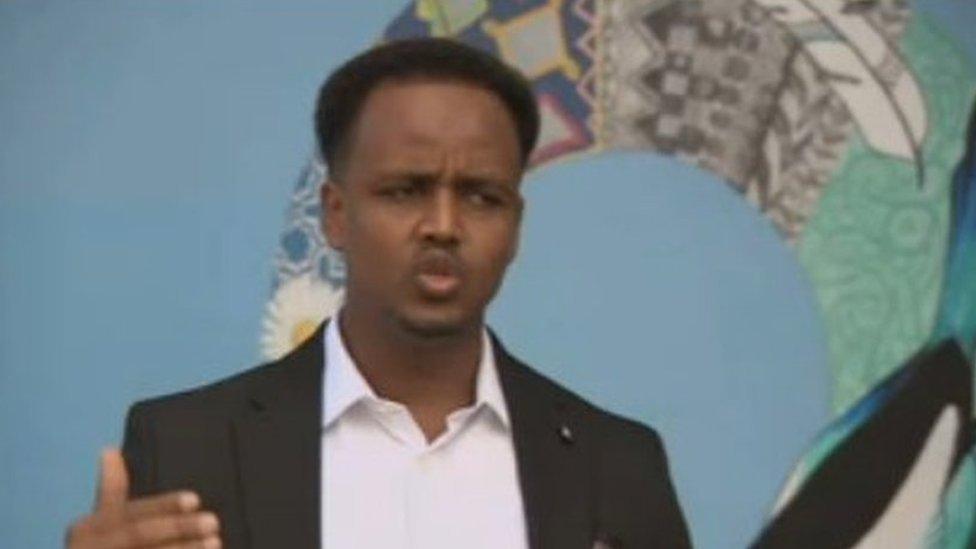
- Published19 April 2020
